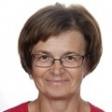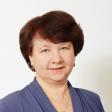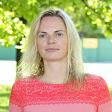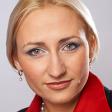Social Work with Children and Youth
This academic master’s programme is aimed at the acquisition of in-depth knowledge in social work with children and youth, ensuring innovative professional development opportunities and preparing for scientific and pedagogical work in the field of social work or for future studies at the doctoral level.
The programme Social Work With Children and Youth has joined an international consortium of four universities that will manage the programme adding an even more international dimension to it (studies held for a semester in each of the partner universities). With this change of organisation, RSU will no longer process applications to this programme since the admissions will be organised centrally by the leading partner university.
Study environment and methods
Study environment
The studies take place in well-equipped computer rooms and classrooms with modern multimedia technologies. The study programme covers biological, psychological and social aspects of children and youth behaviour, family theory, social work with children and youth in a multicultural environment and European social, youth and family policy.
- 1st study year
Students master theoretical models of social work, professional development and supervision in social work, interactive methods for working with children and youth, European social policy, scientific research practice, biological, psychological and social aspects of behaviour, children and youth career consultation and cross-cultural mediation.
- 2nd study year
Students acquire cross-cultural cooperation between youth, social and cultural inclusion of different youth groups, etc., develop and defend a master’s thesis.
Study methods
- lectures
- seminars
- case analysis
- individual work
- team work
- writing of presentation papers
The purpose of the applied study methods is to provide an opportunity for the acquisition of theoretical knowledge and practical skills consistent with the aim of the study programme, to improve critical thinking skills, develop communication skills and the ability to work both individually and as part of a team, appreciate diversity and express one’s thoughts in writing. Independent work constitutes a fundamental part of the study process.
Admission requirements and deadlines
Study bases
- Medical Education Technology Centre (26a Anniņmuižas bulvāris)
- Mykola Romeris University (Lithuania)
- Catholic University in Ružomberok (Slovakia)
- ISCTE-University Institute Lisbon (Portugal)
Career opportunities following studies
Following graduation there are a number of job options not only in Latvia and Lithuania but in other countries as well - working with children and youth in a multicultural environment, as well as in refugee and asylum seeker centres. Potential employers - local government, social and educational centres for children and youth, childrens' crisis centres, as well as the option of conducting research and continuing with doctoral studies.
According to Mykola Romeris University, 92 % of graduates work with children and youth.
Further studies
Studies may be continued in the following doctoral study programmes at RSU (Communication Culture and Multimedia, and Psychology are offered in English):
Communication Culture and Multimedia
Study programme offered by
Head of Programme
Director of Study Programme, Faculty of Health and Sports Sciences










